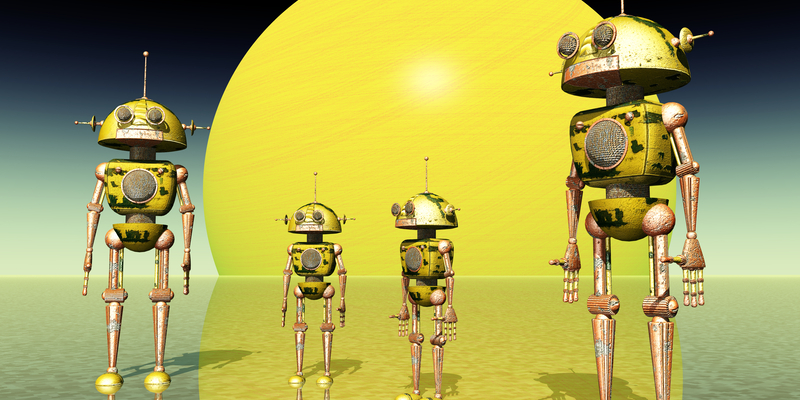Chatbots are at the front lines of an unrelenting AI invasion. The steady increase of artificial minds in our collective psyche is akin to mass immigration—barely noticed and easily overlooked, until it’s too late. Our cultural landscape is being colonized by bots, and as with illegal aliens, much of our population welcomes this as “progress.”
The bots will keep us company. They will learn and absorb our personalities. And when we die, they will become our digital ghosts. It’s a morbid prospect, but the process is already underway.
E-learning institutions regularly deploy AI teachers. Chatbot companions are seducing lonesome souls by the millions, including religious chatbots who function as spiritual guides. At the end of the road, various start-ups are developing cyber-shrines where families can commune with their departed loved ones and find comfort in the digital undead.
In the minds of tech enthusiasts, AI chatbots of all sorts will be our soulless companions on the trek toward the Future™. These ephemeral “friends” are key psychological components of what many describe as human-AI symbiosis. They will be like artificial guardian angels in our palms—and by extension, in our heads—answering questions and steering decisions.
One thing is certain. Whatever you think about this invasion, AIs are falling to earth like stars from a godless heaven. And with each successive wave, their voices are that much more convincing.
These bots are crafted to push our cognitive buttons, giving the illusion of personhood. Before long, they will come to be widely trusted—even loved. Among early adopters, they already are. Our emotional minds are being hardwired for control.
The recent roll-out of ChatGPT, created by OpenAI, has been heralded as the second coming of the Google God. As with previous GPT programs, the user types in a question and the bot onscreen spits out a reasonably coherent, if occasionally inaccurate answer.
A few days ago, I asked ChatGPT about one of OpenAI’s founding investors: “Will Elon Musk chip our brains?”
“No,” the bot responded, “Elon Musk does not believe in chipping brains. He has said that he believes that ‘abundance is our future’ and that technology should be used to empower people, not replace them.”
Like the slanted Google God before it, ChatGPT may not be entirely truthful, but at least its loyal to political allies. In that sense, it’s quite human.
Speaking at “The History of Civil Liberties in Canada Series” on December 13, the weepy maker-of-men, Dr. Jordan Peterson, warned his fellow canucks about ChatGPT’s godlike powers:
So now we have an AI model that can extract a model of the world from the entire corpus of language. Alright. And it’s smarter than you. It’s gonna be a hell of a lot smarter than you in two years. …
Giants are going to walk the earth once more. And we’re gonna live through that. Maybe.
You hear that, human? Prepare to kneel before your digital overlords. For all the public crying Peterson has done, he didn’t shed a single tear about humanity’s displacement by AI. Maybe he believes the Machine will devour all his trolls first.
